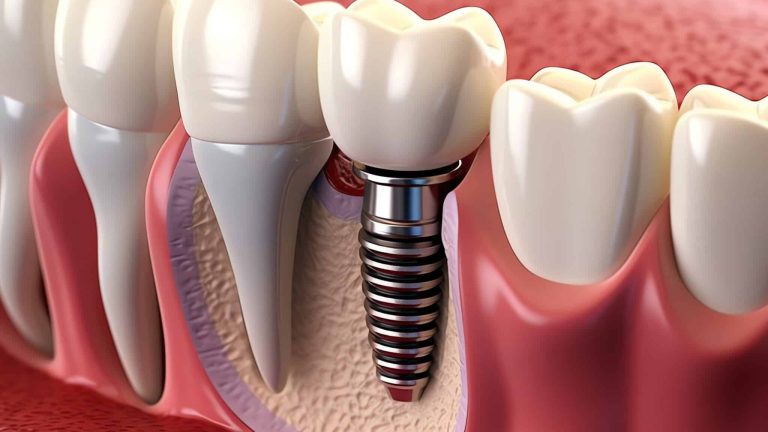Introduction
Your nighttime habits have a significant impact on your oral health, even if you are not aware of them. Activities such as grinding your teeth (bruxism), clenching your jaw, or breathing through your mouth while you sleep can lead to serious long-term dental issues. Fortunately, using a mouthguard can be an effective solution to protect your teeth and improve your quality of life. In this article, we will explore how nighttime habits affect your oral health and why you should consider using a mouthguard.
What Are Nighttime Habits and How Do They Affect Your Oral Health?
- Bruxism is the involuntary habit of grinding or clenching your teeth, usually during the night. This problem can be caused by stress, anxiety, or dental misalignment. Consequences:
- Enamel wear.
- Jaw and facial muscle pain.
- Fractures or cracks in the teeth.
- Dental sensitivity.
- Mouth Breathing – Sleeping with your mouth open can dry out saliva, an essential component for protecting your teeth and gums from bacteria. Negative Effects:
- Increased risk of cavities.
- Persistent bad breath.
- Inflamed or bleeding gums.
- Jaw Clenching – Similar to bruxism, this habit can occur without grinding the teeth, but it exerts excessive pressure on the jaw and teeth. Impact:
- Temporomandibular joint (TMJ) pain.
- Uneven dental wear.
- Morning headaches.
- Snoring and Sleep Apnea – Although they do not directly affect the teeth, sleep apnea can be related to jaw problems and contribute to bruxism.
What Is a Mouthguard and How Does It Work?
A mouthguard is a device designed to cover the teeth and protect them from damage caused by nighttime habits. It is made from flexible or rigid materials, depending on the patient’s needs.
Types of Mouthguards:
- Pre-fabricated Mouthguards:
- Available at pharmacies.
- Affordable but less comfortable and effective.
- Thermoplastic Mouthguards:
- Mold to the shape of your teeth after being heated in hot water.
- Offer a better fit than pre-fabricated options.
- Custom Mouthguards:
- Made to measure by a dentist.
- Maximum comfort, fit, and effectiveness.
How Do They Protect Your Teeth?
- They act as a barrier between the upper and lower teeth.
- They absorb the impact of bruxism and jaw clenching.
- They reduce pressure on the jaw and the temporomandibular joint (TMJ).
Benefits of Using a Mouthguard
- Prevention of Dental Wear – Mouthguards prevent the grinding of teeth from wearing down the enamel, protecting the dental structure and reducing the risk of cavities.
- Reduction of Facial and Jaw Pain – By minimizing the pressure exerted on the muscles and jaw, a mouthguard can relieve morning pain in the face, head, and neck.
- Protection of Dental Restorations – If you have crowns, veneers, or implants, a mouthguard helps prevent costly damage and extends their lifespan.
- Improved Sleep Quality – By reducing the impact of bruxism and other nighttime habits, many people experience more restorative sleep.
- Prevention of TMJ Complications – The temporomandibular joint is vulnerable to stress caused by jaw clenching. A mouthguard can help prevent dysfunctions in this area.
Who Needs a Mouthguard?
- Patients with Bruxism – If your dentist has noticed signs of dental wear or if you wake up with facial pain, you might be an ideal candidate.
- People with Orthodontic Appliances – Mouthguards help protect braces and prevent damage during treatment.
- Patients with Dental Restorations – Crowns and veneers can be damaged over time due to bruxism, but a mouthguard keeps them safe.
- Athletes – Although not a nighttime habit, mouthguards are essential for preventing injuries during sports activities.
How to Choose the Right Mouthguard
Choosing the right mouthguard depends on your specific needs and budget.
- Consult Your Dentist – A custom mouthguard is always the best option, as it is designed specifically for your mouth.
- Consider Comfort – A comfortable mouthguard is more likely to be used regularly. Custom mouthguards offer the best fit.
- Evaluate Durability – If you grind your teeth heavily, a rigid mouthguard might be more suitable.
- Review Your Budget – Although custom mouthguards are more expensive, their effectiveness and durability make them a valuable investment.
Care and Maintenance of Your Mouthguard
A well-maintained mouthguard can last for several years. Follow these tips to keep it in good condition:
- Daily Cleaning – Wash your mouthguard with warm water and mild soap after each use. Avoid hot water, as it can deform it.
- Proper Storage – Store the mouthguard in a ventilated case to prevent bacteria buildup.
- Periodic Check-ups – Have your dentist check its condition and fit regularly.
- Avoid Chewing on It – Although it is durable, chewing on the mouthguard can damage it and reduce its effectiveness.
Real-Life Case: How a Mouthguard Transformed a Patient’s Life
At Clínicas La Guardia, we treated a patient with severe bruxism who suffered from constant jaw pain and advanced dental wear. After designing a custom mouthguard, the patient experienced a significant improvement in their quality of life. Not only did the pain disappear, but the patient was also able to protect their teeth from further damage.
Conclusion
Nighttime habits such as bruxism and jaw clenching can negatively impact your oral and overall health. However, a mouthguard may be the ideal solution to prevent damage, alleviate discomfort, and improve your quality of life. At Clínicas La Guardia, we offer custom mouthguards designed to meet your specific needs. Don’t wait any longer to protect your smile!




